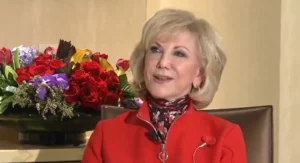Exploring the 8 Most Spoken Languages in the World
By TOI Desk
March 1, 2024
Update on : March 1, 2024

Since childhood, we have learned that language is the main way to express our thoughts. However, people in different regions of the world express their thoughts through various languages.
According to the Summer Institute of Linguistics (SIL) International, a linguistic research institution based in the United States, there are currently 7,168 languages in the world.
However, 42% of these languages are in a ‘vulnerable’ state, meaning that 3,445 languages are on the path to extinction.
Even before, many languages from various countries, including Bangladesh, have permanently disappeared over time.
But which languages are still thriving in the world? Which language do people speak the most? And in which countries are these languages used?
Today, we will learn about eight languages that are most widely used.
1. English

If we talk about widely spoken languages, without a doubt, English comes first.
English is the mother tongue of only a few countries, but it is not the primary language after the mother tongue in many countries around the world.
According to Ethnologue, about 1.5 billion people in the world speak English.
Although English is the mother tongue of only 38 million people in the world, it ranks third globally in terms of the number of native speakers.
The United Kingdom is the homeland of this language.
Even though large populations do not have English as their mother tongue, English has played a central role globally for centuries, thanks to British imperialism.
During that time, the British established their colonies in Africa, South America, Asia, and the Caribbean. Generally, the purpose behind establishing colonies is to create economic dominance over the region.
Despite the end of the British Empire, the impact of colonialism has remained worldwide. English, as a result, has become even more influential in various regions of the world.
According to Ethnologue, English is spoken by people in 146 countries worldwide. Notable among them are Australia, the United States, the United Kingdom, Canada, Europe, and many countries in Asia.
It’s worth mentioning that English is one of the languages in the Indo-European language family.
2. Mandarin Chinese

Most people in China speak Mandarin Chinese. If we consider only the mother tongue, then Mandarin Chinese has the highest number of speakers in the world.
According to Ethnologue, the mother tongue of about 1.1 billion people in the world is Mandarin Chinese.
In addition, approximately 1.1 billion people in the world speak Mandarin Chinese. In this case, Mandarin Chinese ranks second after English.
The high number of Mandarin Chinese speakers is because China is the third most populous country globally. According to the World Statistics of China, the current total population of the country is slightly over 1.4 billion.
Ethnologue says that 81% of China’s population speaks Mandarin Chinese. Moreover, Mandarin Chinese is spoken in 37 countries, including Canada, Myanmar, Mongolia, Vietnam, Australia, and New Zealand.
It is said that Mandarin Chinese is one of the most difficult languages to learn in China, where the language was born over 5000 years of evolution.
3. Hindi

From the perspective of the population, Hindi is in the third position among the speakers. According to Ethnologue, about 60 crore 90 lakh people in the world speak in Hindi. Among them, the mother tongue of 35 crore people is Hindi.
People who speak Hindi mostly live in India. However, India has many languages besides Hindi. If calculated, about 25% of the total population of the country speaks Hindi as their mother tongue.
According to the Ministry of Education in India, among the 22 official languages of the country, Hindi is second only to the mother tongue.
After gaining independence in 1947, Hindi was officially adopted as the language of the government on September 14, 1949, in India. Currently, this day is celebrated as Hindi Day.
Along with Hindi, there are several other languages with similar pronunciations, such as Bengali, Urdu, Nepali, Bhojpuri, Rajasthani, etc.
It is noteworthy that since 1950, the rise of the Bollywood industry, that is, the rise of Bollywood cinema, has reintroduced Hindi to the world on a new scale.
4. Spanish

Approximately 560 million people around the world speak Spanish. It is the fourth most spoken language globally.
As a native language, around 490 million people speak Spanish, making it the second most spoken language in the world after Mandarin. According to information from Encyclopaedia Britannica, Mexico has the highest number of Spanish speakers, followed by Colombia, Argentina, the United States, and Spain.
Spanish, a Romance language in the Indo-European language family, serves as the official language in 18 countries. Initially, it was not widely used. Like Britain, Spain once colonized many countries worldwide, mainly in Latin America, influencing the language in those colonies.
It’s notable that among the six official languages of the United Nations, Spanish is one of them.
5. French

French, also known as ‘Français,’ is another official language of the United Nations. Most international organizations use French alongside English.
According to Ethnologue, there are more than 300 million French-speaking people worldwide. Britannica states that French is used as an official language in over 25 countries, with significant usage in France and Canada. Additionally, several African countries use French.
Similar to Spanish, French has wide reach due to colonization. France expanded its colonies in various countries, primarily in Africa, spreading the use of the French language.
6. Arabic

According to Ethnologue, around 270 million people worldwide speak Arabic.
Arabic is the mother tongue for people in Middle Eastern and North African countries like Saudi Arabia, the United Arab Emirates, and Bahrain. Additionally, it is widely used in many other regions, despite not being the native language.
Presently, Arabic is an official language in about 30 countries. Notable among them are Algeria, Egypt, Iraq, Jordan, Kuwait, Lebanon, Morocco, Oman, Saudi Arabia, Sudan, and Syria.
Due to religious reasons, many Muslims have some knowledge of Arabic, and it is the largest language in the Semitic language family and one of the official languages of the United Nations.
7. Bengali

According to Ethnologue, there are more than 270 million Bengali speakers worldwide.
Bengali is the seventh most spoken language globally, with the highest number of speakers residing in Bangladesh, followed by West Bengal and Assam in India.
The language issue became complex before the partition of British India in 1947. In 1948, the then Pakistani government declared Urdu as the state language, leading to protests in East Bengal (now Bangladesh). The movement culminated on February 21, 1952, when police opened fire on protesting students near Dhaka Medical College. Salam, Barkat, Rafiq, Jabbar, and Shafiur were among those martyred.
Due to the sacrifices of language activists and the respect for language rights, UNESCO declared February 21 as International Mother Language Day in 1999.
8. Portuguese

Portuguese, with 264 million speakers, is the official language of Portugal, Brazil, and several other countries.
These languages play crucial roles in communication, culture, and global interactions. Keep in mind that these rankings can vary due to different criteria and data sources, but they provide a fascinating glimpse into linguistic diversity!
















